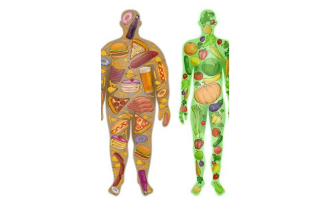Diabetes myth: Know the facts about diabetes before you believe

Diabetes is the most common metabolic disorder globally. Especially in developing countries like India, being overweight or obese or having an unhealthy lifestyle becomes a serious issue. According to a 2019 report (1), 77 million people are affected by type- II diabetes, and approximately 57% of these people are not diagnosed. In 2021 (2), a report established that 573 million individuals are suffering from diabetes globally.
Type II diabetes can cause multi-organ complications like kidney failure, retina damage, coronary heart disease, nerve damage, etc. Therefore, people should be aware of it. Most of the time, people are not serious about this disorder at an early stage. As a result, Diabetes acts as a silent killer and damages vital organs. A proper diet, healthy lifestyle, and expert guidance can help you properly manage your blood sugar level.
Type II diabetes is a very well-known disorder globally. Therefore, various pieces of advice are circulated via articles or social media sources. Unfortunately, some myths are also circulated, and people often follow them blindly. In this article, I will discuss 5 very common myths about diabetes that can help you understand the facts.
What is diabetes:
The scientific name of diabetes is Diabetes mellitus. Diabetes is a chronic metabolic disorder. Insulin is a hormone produced by the pancreas that helps to supply energy to our body by passing glucose from the bloodstream to the body’s cells.
In this disorder, our body is not able to produce enough insulin hormone, or insulin does not function properly. As a result, the blood sugar levels become high, and diabetes occurs. There are mainly 3 types of diabetes: type 1, type 2, and gestational diabetes.
Types of diabetes:
Type 1 Diabetes or Insulin-dependent diabetes:
In this type of diabetes, the pancreas is not able to produce enough insulin because the body’s immune system attacks the beta-cells of the pancreas which helps to produce insulin. Mostly children and adolescents are affected by this disorder, but it can also develop in adults.
Type 2 Diabetes or non-insulin dependent diabetes:
A very common term for diabetes. Around 90-95% of total diabetes patients are affected by this type of diabetes. If the blood sugar level becomes very high in our bloodstream due to a lack of insulin secretion or insulin resistance, type 2 diabetes occurs. Overweight, obesity, lack of physical activities, and unhealthy lifestyle also trigger the risk factors of this type of diabetes. People can control this disorder with a healthy balanced diet, lifestyle management, and expert guidance.
Gestational diabetes:
During pregnancy, some women experience this type of diabetes. In this phase, the blood sugar level becomes high because of the high demand for insulin. The body cannot meet the requirement of insulin. After childbirth, the blood sugar level mostly normalizes.
Common myths about diabetes:
A very common myth is that you should follow a special diet if you are diabetic but the fact is there is no special diet for diabetic patients. You can manage your blood sugar level with your normal food habits. You should choose the correct food in the right quantities. It is suggested that you should include vegetables, whole grains, legumes, and fruits as a source of carbohydrates in your diet. Also, you should avoid saturated fats, sweet products, excess sodium intake, and processed foods.
People who are suffering from this disease sometimes get very confused about choosing the right foods. Being a dietitian, I always suggest that if you are getting confused about your diet then always consider expert advice. They can guide you properly according to your health conditions. Some people believe in some products and supplements available in the market that claim to cure diabetes. Do not take this without an expert’s guidance.
Foods you should include in your diet: Whole grain, pulses, legumes, seasonal vegetables, fruits (try to consume occasionally like mango, banana, grapes, sapota, etc), lean meat, lean fish, egg, low-fat milk, and milk products, nuts (in moderation), etc.
Foods you should avoid: Fast food, junk foods, fried foods, saturated fats, sweets, jam, sweet chutney, pastries, processed foods, etc.
The fact is that eating sugar is not a cause of diabetes. When we eat food, it converts into a simple carbohydrate called glucose. Glucose acts as a main source of energy in our body. Insulin hormone helps to pass glucose from the bloodstream to body cells to supply energy to our body. If insulin does not work properly or the production of insulin is not enough, the blood glucose level becomes high in our body and diabetes occurs.
If you are a non-diabetic person who eats sugar or sugar-related foods, it does not imply you will be a diabetic patient. However, excess amount of sugar or sugar-related food intake is a cause of overweight or obesity, which can increase the risk of type 2 diabetes. Therefore, it is always recommended to control your sugar intake, which can help you both control body weight and blood sugar level.
Many diabetic patients believe that they should stop eating fruits because fruits are sweet and raise their blood sugar levels. It is a myth. Yes, fruits contain a natural sugar called fructose. However, fruits are also excellent sources of vitamins, minerals, fibre, antioxidants, etc. According to The National Institute of Diabetes and Digestive and Kidney Diseases Trusted Source people who are diabetic should include fruits in their diet. Also, fruits are good for our heart health, help with weight management, and reduce the risk of cancer.
The nutritional content of all fruits is not the same. Some fruits like bananas, grapes, sapota, pineapple, mango, etc. contain high calories. Therefore, if you are a diabetic then you should consume limited quantities of these fruits and have them occasionally. Most importantly you should be concerned about the sugar content of these foods and eat accordingly.
Fruits that have a low Glycemic index, which help to control your blood glucose level. The Glycemic Index is a number that indicates how much a food increases your blood sugar level over a specific period. It is ranked by how fast or slowly they are digested and increases blood glucose levels. The GI value of 55 or less for a specific food is considered low and a GI value of 70 or above is considered high. Usually, low-GI foods are good for health, but that may not always be true. E.g., the GI value of a chocolate bar (100 g) and 100 g of brown rice are almost the same. In that case, you should choose the right one according to the nutritional benefits.
Glycemic index of some common fruits:
|
Fruits |
Glycaemic Index |
Serving size |
Net carbs |
|
Grapefruit |
25 |
½ large (166 g) |
11 |
|
Apple |
38 |
1 medium (138 g) |
16 |
|
Orange |
48 |
1 medium (131 g) |
12 |
|
Banana |
52 |
1 large (136 g) |
27 |
|
Raisins |
64 |
1 small box (43 g) |
32 |
|
Watermelon |
72 |
1 cup (154 g) |
11 |
Source: Apollo Clinical Nutrition Handbook
Some people believe that if there is no history of diabetes in their family, they will not be diabetic. This statement is not completely true. The fact is if your parent or siblings are diabetic then you have a good chance of diabetes. Apart from this, an unhealthy lifestyle, poor food habits, and lack of physical activities are also increasing the risk factors for type II diabetes (3). Therefore, if there is no record of diabetes in your family it does not mean you will not be affected.
The most common factors that may develop the risk of diabetes instead of family history are:
Age
Overweight or obesity
Unhealthy food habits
High blood pressure
Polycystic Ovarian Disease (PCOD)
gestational diabetes
High cholesterol level
Stress, etc.
A healthy balanced diet can help you to regulate your blood sugar level properly. There is no special food you need to purchase from the market. Type II diabetes is a very common disease. Therefore, many products are available in the market which are sold as diabetes-friendly. However, if you check the label, most of the products have high calories and saturated fats which are known as bad fats. Therefore, do not waste your money on these types of products like biscuits, cookies, sweets, etc. If you have any confusion about your diet, then always consult with your doctor or dietitian.
If you are diabetic, then you need to be concerned about,
- How many calories do you consume daily?
- Choose the right sources of carbohydrates like whole grains, fresh seasonal fruits, vegetables, and legumes.
- Avoid high fat-containing foods, fried foods, extra salt, or salty foods, and sugar-related foods.
- Focus on the portion size of your food. You should have an idea of which food you need to consume in what quantities.
For a diabetic patient, regular sweet or sugary food intake is not recommended. But if your sugar level is well-controlled with diet and medication, you can eat sweets occasionally in a limited amount. It is good practice to consult with your dietitian and take advice.
People who are overweight or obese indeed have a high risk of being diabetic. However, that does not mean that every overweight or obese person suffers from diabetes. Type II diabetes depends on various factors and overweight or obesity is one of them.
About 12.5 percent of U.S. adults with type 2 diabetes have a normal range of BMI (Body Mass Index) (4). Therefore, if you wish to be a non-diabetic person then you must maintain a healthy lifestyle as well as healthy food habits and this can be applicable for both those who have normal weight and those who are obese.
Bottom line:
Diabetes is a lifelong disease. Many sources claim that diabetes is curable with various food supplements. Please do not believe it. If your blood sugar level becomes normal with medication and weight management, it does not mean diabetes is gone. You should maintain a proper diet and healthy lifestyle continuously otherwise diabetes will back again.
According to Diabetes UK (5), there is no cure for diabetes. However proper weight management helps you to put your blood glucose level into remission. Diabetes type II remission means your blood glucose level returns to a safe zone and it remains there a long time without the support of any medication. Therefore, if you are diabetic, then focus on maintaining a healthy body weight, healthy diet, and healthy lifestyle along with medication rather than spend money on expensive products. Do not believe in myths, consult with experts if you need to.












0 Comments